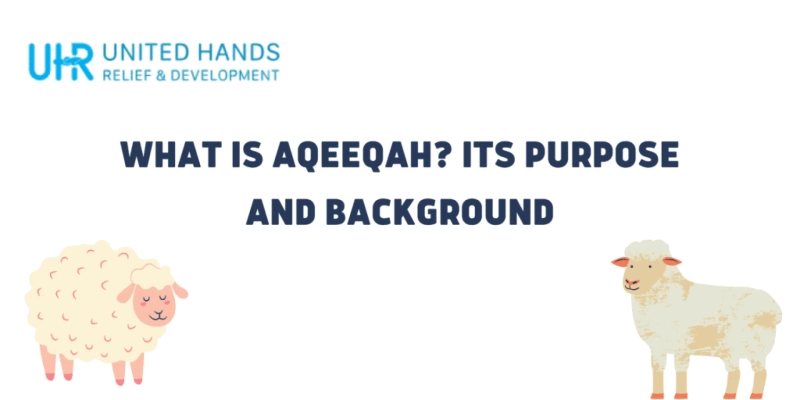Aqeeqah - Thanking through Sacrifice
Aqeeqah is the Islamic practice of donating money to charity by sacrificing animals following the birth of a new child. Aqeeqah is performed by parents/guardians to thank Allah (SWT) for the blessing of having a child, protection from evil powers (Shaytaan), atonement for sins, and prevention of calamity. It is customary to perform the Aqeeqah sacrifice on the seventh, fourteenth, or twenty-first day following the birth. If this is not possible, it can be done on any day till puberty.
Some scholars have issued a Fatwa stating that Aqeeqah (haqiqa, aqeeqa) is valid till the day of one's death. If a person does his own Aqeeqah (aqeeqah, hakika) after becoming an adult, some scholars believe it is invalid, but others believe it is permitted because it is also understood from Fadhul Bari.
Why is Aqeeqah important?
Although Aqeeqah is not mandatory, it has several benefits, and Muslim parents who have the resources should conduct it. Billions of people in the world suffer from poverty, drought, hunger, and even famine. Your Aqeeqah gift not only provides families with a nourishing meal, but it also allows them to participate in the celebration of a new life and make dua for you and your baby.
Many people profit from the reward of this treasured Sunnah. So, by meeting the needs of our brothers and sisters in need, Allah will meet our own. As Muslims, we believe that this life is a test, and one way Allah puts our faith to the test is via adversity. As a result, completing Aqeeqah exhibits high Iman and thankfulness to Allah, and it is only He, who has boundless kindness, who has the power to improve a person's condition.
A return on investment isn't something you'd connect with donating money to a good cause. When we do Aqeeqah, Allah promises to enhance our riches and sustenance, as well as offer us prosperity in this life and the afterlife.
What is the history of Aqeeqah?
The Prophet Muhammad (saw) personally used to conduct Aqeeqah following the birth of a child in terms of protecting and honoring the infant. According to the Prophet's (saw) Sunnah, one animal is slaughtered with the birth of a baby girl and two animals are sacrificed upon the birth of a baby boy. Each of the Prophet Muhammad's (saw) two grandsons, Imam al-Hasan and Imam al-Husain, had Aqeeqah. Although not stated in the Qur'an, 'aqeeqah is referenced in Hadith.
Aisha (RA) narrated that the Prophet (saw) said:
“Slaughter two comparable sheep for a male newborn and one sheep for a female."[Timidhi]
The Prophet (peace and blessings be upon him) advised Muslims to perform aqeeqah for their children. Those who cannot afford it can make other charitable contributions or just make du'a' for their child.
What is the method to perform Aqeeqah?
The practice of 'aqeeqah is to shave or trim the baby's hair. According to the weight of the baby's hair, one may donate silver or gold as a charitable gift. As a sacrifice, one or two goats or sheep should be slain, and the meat should be distributed to the needy, friends, and family members who can utilize some of it.
The animals' conditions for Aqeeqah are the same as the animals' criteria for Qurbani. The killed animals must be goats, sheep, cows, or camels. Camels must be at least 6 years old, cows must be at least 3 years old, and goats must be at least 2 years old. They must be devoid of any physical problems such as blindness, disease, lameness, and malnutrition. The animals must be slaughtered in a humane manner. For more information visit: https://www.uhrelief.org/seasonal-programs/


